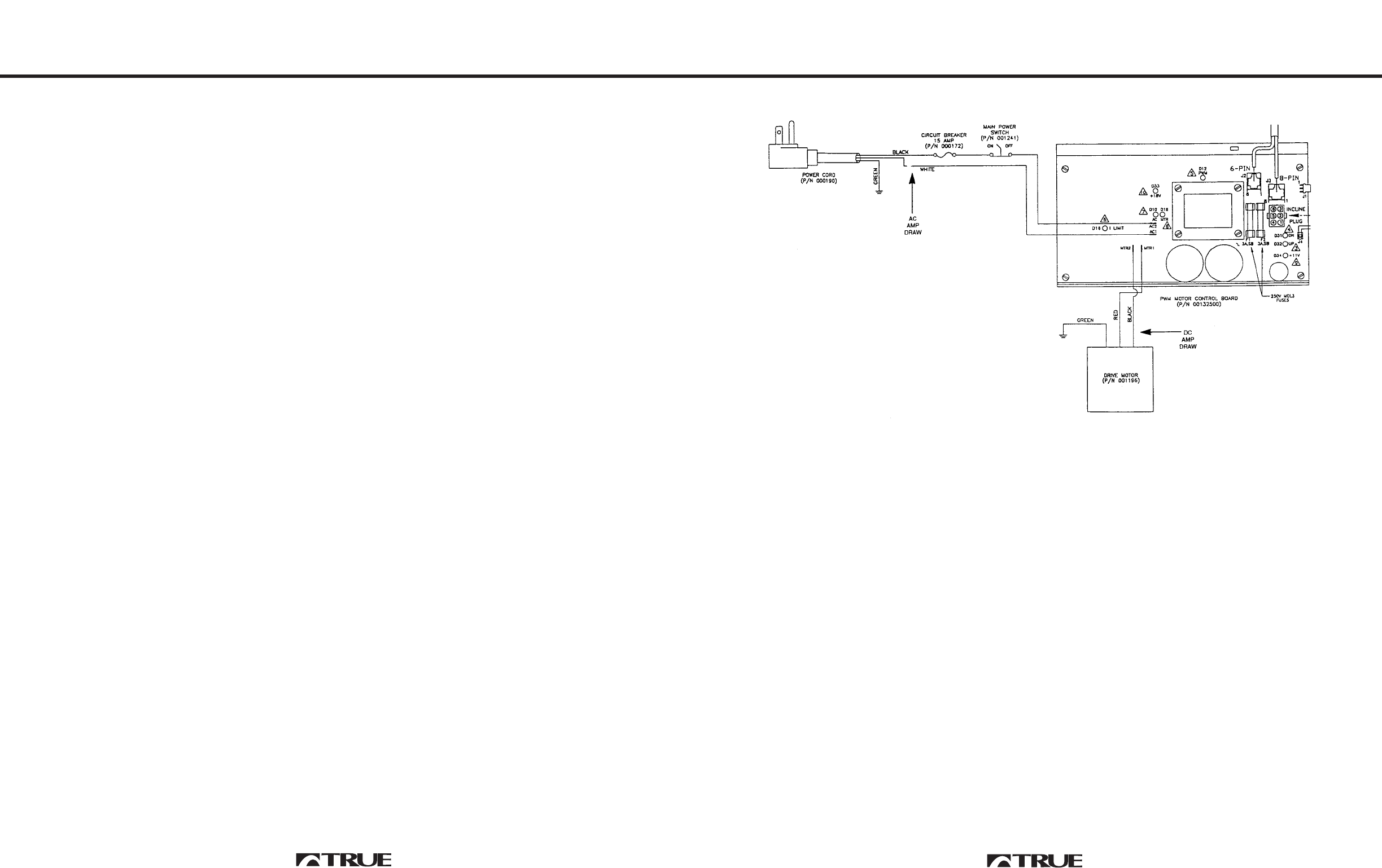
Test Procedures
3-28
DDCC AAmmpp DDrraaww PPrroocceedduurree
This procedure can be performed with an ordinary voltmeter. (Note: be
sure the voltmeter is rated to handle 20 DC amps.) Disconnect the
Red motor lead from MTR1 on the PWM. Connect the voltmeter to
MTR1 on the PWM and the other voltmeter lead to the Red motor lead
so that the voltmeter completes the connection of the PWM to the
motor.
2.5 mph without load 4.5 - 5.0 AMPS DC
with load 7.0 - 7.5 AMPS DC
5.0 mph without load 5.0 - 5.5 AMPS DC
with load 8.5 - 9.0 AMPS DC
Higher than normal amp draws without load may signal that belt tension is too tight
or there is a problem in the Drive Motor or PWM. Perform the Drive motor Test and visually
check the motor brushes before replacing the PWM. Higher than normal amp draws with
load after normal readings without load signal belt and deck friction which may require
lubrication or replacement.
SSPPEEEEDD IINNCCLLIINNEE CCAALLIIBBRRAATTIIOONN TTEESSTT
(6-8xxxx serial numbers and after)
Enter Calibration Mode by holding the Up and Down keys while inserting the safety key.
The message center window displays: Calibration, Press Start
NNOOTTEE::
In calibration mode, it is possible to check if the speed sensor
is reading all the front roller magnets: The Met light will light when a magnet
is in front of the sensor. Move the belt slowly with your foot.
Press Start/Reset to begin calibration
Treadmill will elevate and speed up/slow down. Wait for belt to stop.
Message center window will display: Successful, or indicate error area
Remove and reinsert safety key. Check operation of treadmill
GGRROOUUNNDDEEDD OOUUTTLLEETT TTEESSTT
This test is very important for optimal HRC and incline operation.
Set voltmeter for Volts AC
Place 1 lead in the right side of the outlet (hot)
Place l lead in the ground plug
A properly grounded outlet will read 120 VAC
AAMMPP DDRRAAWW TTEESSTT
This test is a good indicator of the wear condition of the belt and deck, and
the need for lubrication. The treadmill circuit breaker will trip at 20 amps, so
be sure the voltmeter you are using is rated for at least 20 amps when you are
load-testing the treadmill. This test can be performed either on one of the AC
power cord leads or on one of the DC motor leads from the PWM to the
motor. Testing the amp draw at certain speeds without load and with load will
signal whether higher than normal amp draw is a result of PWM failure or
increased friction from belt and deck wear.
AACC AAmmpp DDrraaww PPrroocceedduurree
This procedure requires an AC clamp-on ammeter. Place the clamp
around either of the power cord leads, black or white. Load test
requires a person to walk on the treadbelt for 5- 10 minutes.
2.5 mph without load 2.0 - 2.5 AMPS AC
with load 2.75 - 3.75 AMPS AC
5.0 mph without load 3.5- 4.0 AMPS AC
with load 5.0 - 7.0 AMPS AC
Test Procedures
3-27


















